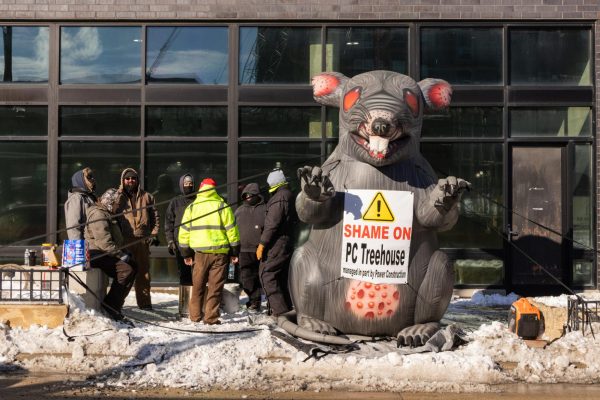Read newspapers to gain a competitive advantage
Apr 6, 2015
His hands were clenched tight, and every few moments he would pause to wipe the sweat off his palms. This was a big deal. This internship would be his access point: The foot in the door that would secure him employment and a comfortable life post-graduation. He had made it through the resume vetting process, the phone interview and now all that was left was the in-person interview.
Gaurav Kumar, a freshman in LAS, heard his named called by the secretary, took a deep breath and made his way into the office where his interviewer was waiting. On the desk, next to the man’s coffee, was a fresh edition of The New York Times with a headline blaring the latest updates from the Iran-United States nuclear deal. Hoping to avoid the awkward silence before that man started asking questions, Gaurav asked, “Do you think the Iranians are going to drop out of the deal?” What was supposed to be a twenty minute interview turned into an hour-long conversation about United States’ foreign policy and its role in the Middle East.
At the conclusion of the interview, Gaurav stood up, shook the man’s hand and smiled. He got the internship, much to the credit of his being informed on current events.
As Kumar’s example proves, as we grow and develop from students to professionals, it becomes more and more important to understand what is going on in the world. Putting aside my idealistic hope that you read the paper everyday because you are genuinely interested in what is going on around you, the reality is that you need to have at least a general idea of current events.
Reading the paper provides useful fodder for networking and conversations, but more importantly, it makes you smarter and more privy to the way the world works. Around 50 percent of people from ages 55 to 64 read the paper daily. This age group is also most likely to hold executive roles in companies, meaning they are the group that is most likely choosing to hire you or not.
Get The Daily Illini in your inbox!
Simultaneously, young people are becoming less and less aware of current affairs, which can be seen in the decline in newspaper readership. Only around 25 percent of students regularly read the newspaper, but no other media platform provides the same comprehensive coverage that newspapers do.
Newspapers put a lot of thought into what they present to their readers. In a world of billions, there is enough news to fill rooms with current events every day. When you are reading a story, you are reading something that is important and specifically slotted as a crucial story for the population to be aware of that day. Be it the recent Boston Marathon Bomber trial or an update on the peacekeeping mission in Haiti, it is important to remember that these stories beat out hundreds of others for that day. The few stories that you read in the paper will be far more valuable than the millions of things you can read online. Quality always beats quantity.
The newspaper provides a variety of in-depth articles that, in most cases, comprehensively describe the world for the day. If you rely on online media, you run the risk of missing out on important events. You are not going to click on articles that you don’t find interesting. A newspaper forces you to read it all, or at the least, just informative headlines.
Being able to keep up in conversation with those in high places is a guaranteed way to make an impression.
By this point you might be thinking, “Tom, I am a college student. I don’t want to drop money on a newspaper subscription.” Well, my dear reader, guess what? Our campus is uniquely positioned to serve your very need to become informed about current events. The Collegiate Readership Program provides daily copies of nationally syndicated newspapers. The New York Times, The Chicago Tribune and USA TODAY are all delivered to various locations around campus. Check the package delivery room in the Ikenberry Dining Hall, in front of the entrance to the ARC or even in the Union and give yourself a big boost up on the competition by becoming aware of what is going on in the world.
Take advantage of those resources and next time you are preparing for an interview, try taking a look at a newspaper before your resume. You might just get lucky.
Thomas is a freshman in LAS.






